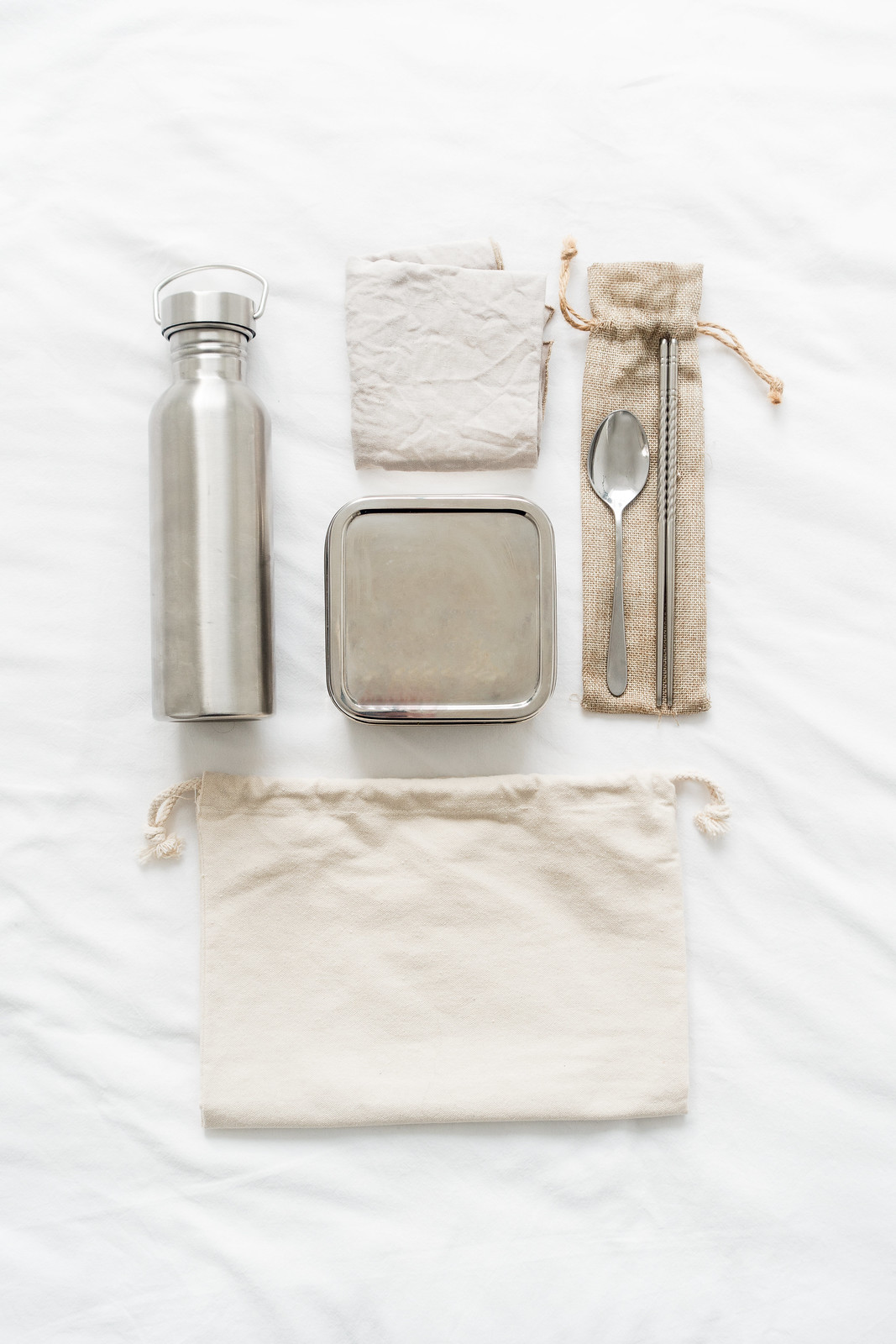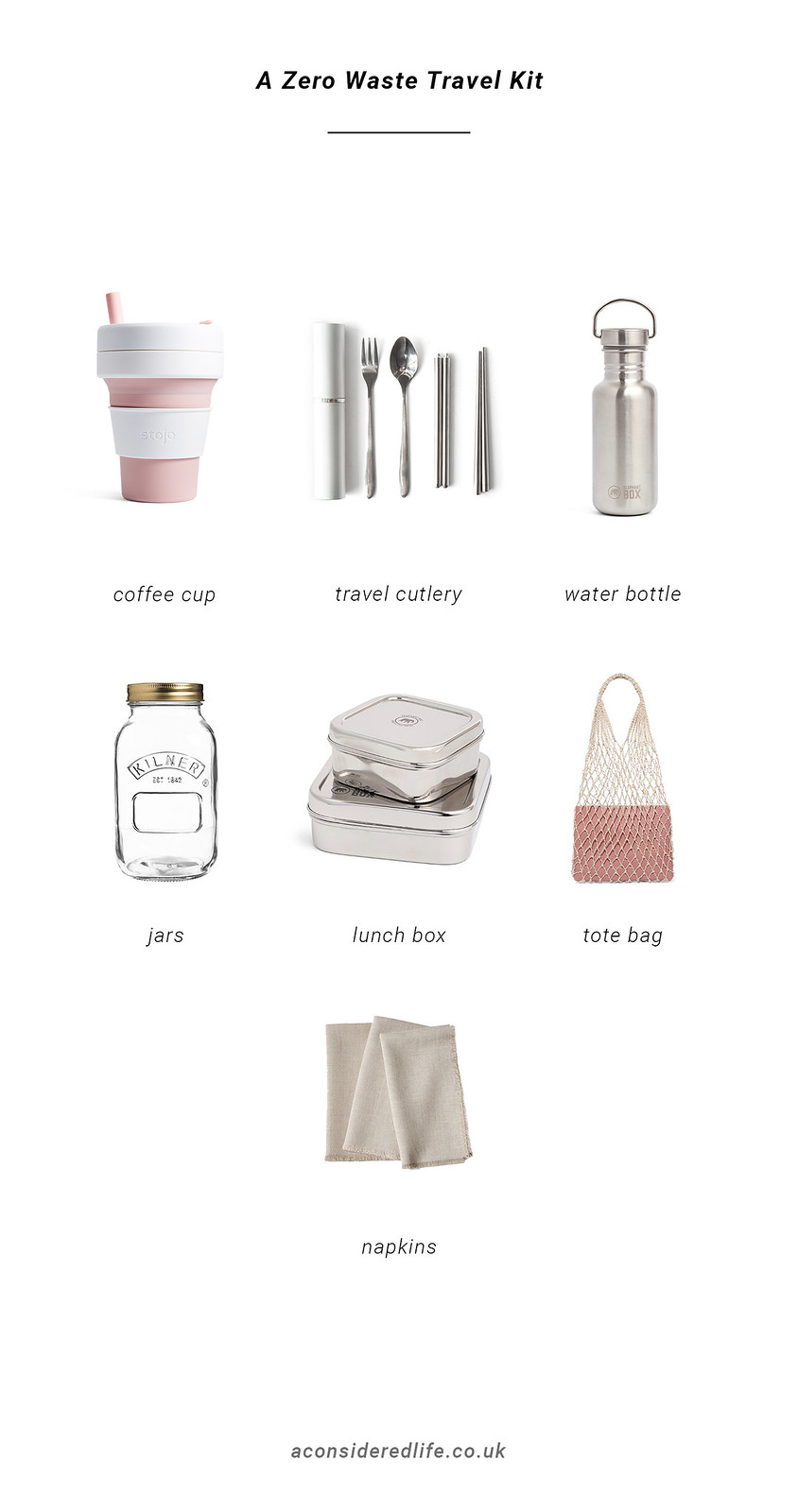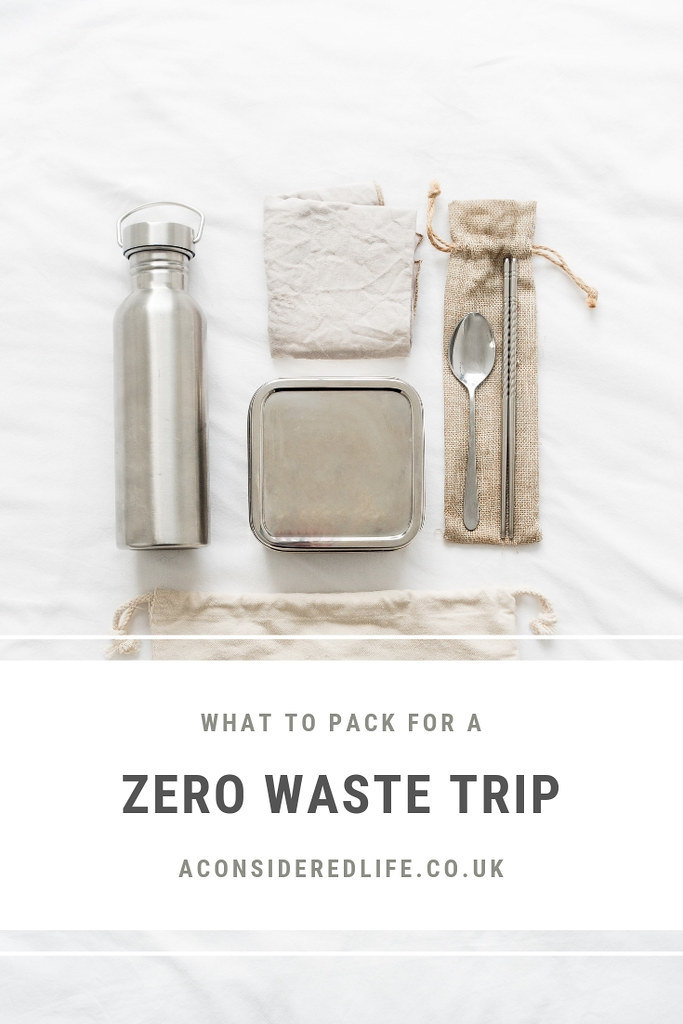
Since I moved 200 miles away from my family home, I regularly take an 8-hour round trip back home to see them or to house sit while they’re away. I’ve quickly learned what to pack for a zero waste road trip, from snacks to drinks and everything in-between. If you’re about to embark on a day trip, weekend away, or a long haul adventure, this post will help you prepare for a sustainable zero waste journey.

Planning
If you’re someone who likes to plan your trip from start to finish, from the route you take to the places you stop, try to do as much of this using online resources as you can. Download maps with your planned route, bookmark rest stops and points of interest, and make notes in an app. Borrow instead of buy travel guides either from your family or friends. Ask those who have gone on a similar trip to you or visited the same places you’re planning to visit so you can borrow maps and guides they might have. I use my phone for everything from mapping routes to planning pit-stops, avoiding the need to buy travel guides or maps.
Food
If you’re on the road for longer than a couple of hours you’re probably going to want more than just snacks. There’s a couple of options: cook an extra portion of the dinner you had the night before and pack it in a lunch box - just remember to pack cutlery too; or plan a stop along the way at a restaurant where you can eat in and sidestep the disposables. Plan to bring home anything you haven’t eaten, that goes for leftovers from dinner, half-eaten deserts, fruit, and other snacks. Box (or jar) it all up and take it with you for the trip back. If you’re not staying somewhere you can cook or prep your own food, plan your route back to include somewhere nice to stop and eat. On my road trips back to Kent, I pack up a good meal for both of us to eat; I look for National Trust locations to stop and eat our packed lunches or drink coffee at.
Snacks
Snacks are easy. Grab whatever fruit and veggies you already have, chop them up, and store in a jar to eat on the road. Same goes with pantry favourites, think nuts, dried fruit, toasted and/or seasoned seeds; even homemade hummus, peanut butter, and bread. If anything is going to pass its best while you’re away, grab that too if it can’t be frozen or otherwise preserved. I freeze any veggies that aren’t suitable for snacking on, chop up ones that are, bake banana bread or cookies, and pack it all up for the road trip. You can never have too many snacks, right? Just make sure everything is stored well and won’t go off in a stuffy car or public transport.
Drinks
Fill up a water bottle or two for the trip and refill them, if you need to, along the way. If you’re finding it tricky to locate a place to refill, most cafes, restaurants, and pubs will offer to do it for you for free. If you’re likely to want a hot drink on your road trip, pack a reusable cup - I like these collapsible Stojo ones - to avoid ordering in a disposable to-go cup. If I'm heading somewhere it’s doubtful they’ll be zero waste coffee facilities, I’ll pack my AeroPress, metal filter, and a jar of coffee grinds; same goes for loose leaf tea. It might seem a little excess but I love a good cup of coffee!
Essentials
Even if you’re just packing snacks and food that don’t require cutlery, pack it anyway. Cutlery is so useful on road trips, you’ll be grateful you packed it. Don’t overlook cloth napkins and food containers either. There’s been a couple of occasions where I’ve had to pilfer spoons and Tupperware from my mother’s cupboards because I forgot to bring my own. It’s so much easier, and takes up no room at all, to pack your own cutlery and napkins for road trips.
Disposal
Whatever waste you cause on your road trip, keep ahold of it until you find a recycling bin. If you end up with organic waste, keep food scraps in an airtight container - the tin you ate your lunch out of or a spare empty jar will do - you can add these scraps to your compost heap or food waste bin when you get to your destination. I try to avoid food scraps altogether by opting for totally edible snacks but if there is some waste, I throw them it in the food waste curbside collection bin or save them for our compost heap at home. You’ll need a sturdy, airtight container for this.
Carbon Off-Setting
Limiting unnecessary travel is the best option but it’s often not possible so the next best thing is to purchase carbon offsets to make your road trip more eco-friendly. You can balance the negative effects of your travel plans by calculating the cost of your carbon emissions and paying the monetary equivalent. Learn more carbon off-setting.
Pin This Post:
